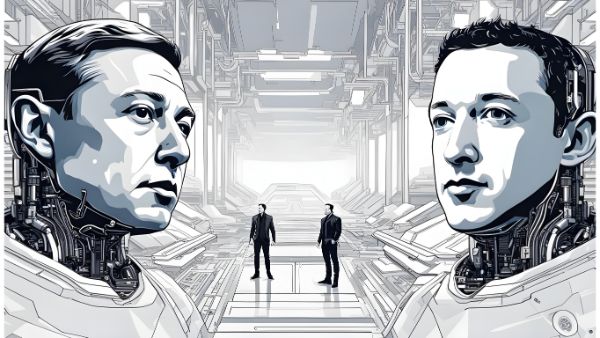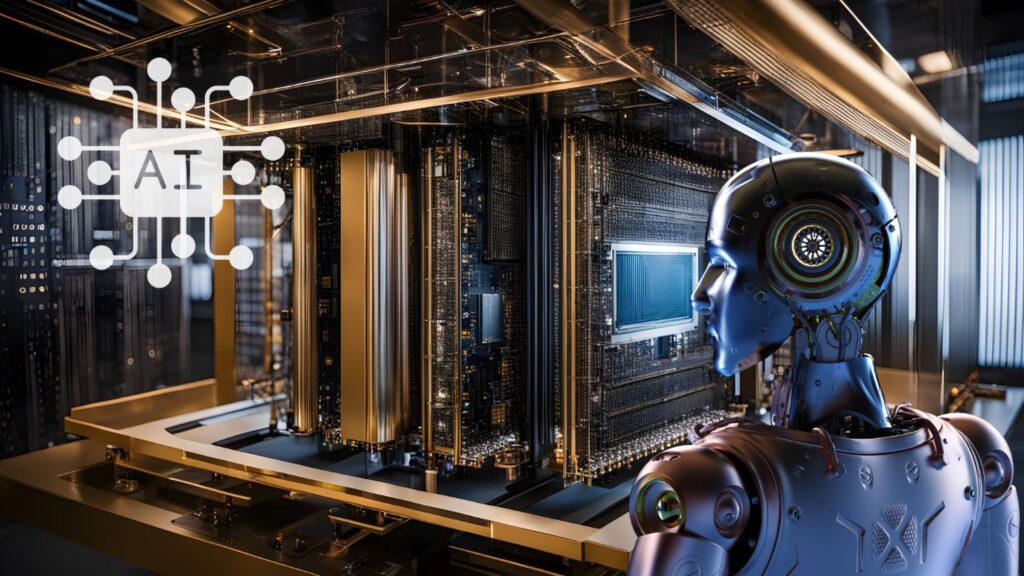Tesla CEO Elon Musk, along with other tech industry giants like Mark Zuckerberg of Meta Platforms and Sundar Pichai of Alphabet, recently came together at Capitol Hill to engage with lawmakers on the subject of artificial intelligence (AI) regulation. This gathering of influential tech CEOs marked a pivotal moment in the ongoing discourse surrounding AI technology. The meeting highlighted the urgency of establishing an AI regulator in the United States, aiming to ensure the responsible and secure use of AI across industries. In this article, we will see the key takeaways from this historic meeting and the implications it holds for the future.
The Emergence of AI and Its Challenges
The 21st century has witnessed an unprecedented surge in the development and application of artificial intelligence. From chatbots to self-driving cars, AI has permeated various sectors, promising innovation and efficiency. However, this rapid advancement has also raised concerns about the ethical and safety aspects of AI.
OpenAI’s ChatGPT, a state-of-the-art language model, played a pivotal role in popularizing AI technologies. While its capabilities are impressive, they have also underscored the need for robust regulations to address potential risks associated with AI’s exponential growth.
Elon Musk’s Call for a Referee
During the meeting with lawmakers, Elon Musk emphasized the need for an AI regulator, drawing parallels to the role of a referee in sports. Musk’s stance resonates with the belief that an independent authority is crucial to oversee the actions of companies using AI. He stated, “It’s important for us to have a referee who ensures that companies take actions that are safe and in the interest of the general public.”
Musk’s insistence on the necessity of an AI referee stems from his view of AI as a “double-edged sword.” While AI holds immense potential for societal progress, it also poses substantial risks if left unchecked. The establishment of a regulatory body could mitigate these risks and ensure responsible AI development.
Mark Zuckerberg’s Perspective
Mark Zuckerberg, CEO of Meta Platforms, echoed Musk’s sentiments during the meeting. He emphasized the importance of Congress engaging with AI to foster innovation while implementing safeguards. Zuckerberg believes that American companies should play a pivotal role in shaping AI regulations, collaborating with the government to address critical issues.
Zuckerberg’s viewpoint aligns with the idea that the government should establish standards and guidelines for AI development, given its potential impact on society. This collaboration between tech giants and lawmakers aims to strike a balance between innovation and security.
Broad Support for AI Regulation
More than 60 senators participated in the meeting, reflecting a bipartisan consensus on the need for AI regulation. Lawmakers expressed their commitment to addressing the challenges posed by AI, including deep fakes, election interference, and threats to critical infrastructure.
Democratic Senate Majority Leader Chuck Schumer, who organized the forum, acknowledged the significance of this initiative, stating, “We are beginning to really deal with one of the most significant issues facing the next generation.”
Challenges and the Road Ahead
While there is a unanimous agreement on the need for AI regulation, the process is expected to be complex and time-consuming. Republican Senator Todd Young cautioned that it would take time for Congress to draft and enact legislation specific to AI. The complexity of AI technologies and the evolving nature of the field require careful consideration.
One pressing concern is the rise of deep fakes, which could have a substantial impact on the 2024 U.S. general election. Lawmakers recognize the urgency of addressing this issue promptly.
Global Efforts in AI Regulation
The call for AI regulation extends beyond the United States. Regulators worldwide are grappling with the challenge of crafting rules for generative AI, capable of producing text and images that are nearly indistinguishable from human creations. Companies like Adobe, IBM, and Nvidia have pledged to follow President Joe Biden’s voluntary AI commitments, including watermarking AI-generated content.
These commitments aim to ensure that AI’s power is harnessed for constructive purposes and not misused for malicious intents. The international community is actively engaging in discussions to create a framework for responsible AI use.
Conclusion
Elon Musk’s call for an AI referee and the subsequent meeting of tech CEOs and lawmakers mark a significant step toward ensuring the safe and responsible development of AI technologies. While the path to comprehensive AI regulation is challenging, the consensus among industry leaders and politicians underscores the urgency of the matter. The future of AI will likely be shaped by collaboration between governments and tech companies, with a focus on innovation, ethics, and security.
FAQs
- Why is AI regulation important? AI regulation is essential to address potential risks and ensure the responsible use of AI technologies in various sectors, safeguarding the interests of the general public.
- What are the challenges associated with AI regulation? AI regulation is complex and requires careful consideration due to the evolving nature of AI technologies and the need to balance innovation with security.
- How are other countries approaching AI regulation? Many countries are actively working on AI regulation, aiming to create frameworks that promote responsible AI development and usage.
- What is the role of AI in the 2024 U.S. general election? AI, particularly deep fakes, could have a significant impact on the 2024 U.S. general election, making timely regulation crucial.
- What are President Joe Biden’s voluntary AI commitments? President Biden’s commitments include measures like watermarking AI-generated content to ensure its responsible use and prevent misuse.



